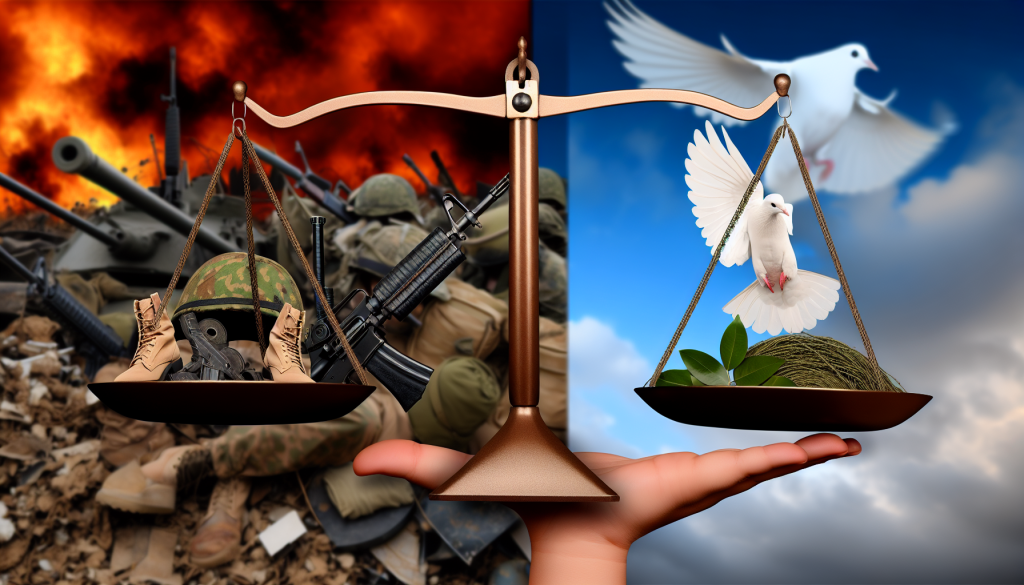Exploring the Ethics of War: Historical and Philosophical Perspectives
War ethics delves into the moral principles that dictate the justification and conduct of warfare. It encompasses a rich tapestry of historical development and philosophical inquiry, reflecting humanity’s ongoing struggle with questions of right and wrong in times of conflict. This article explores the historical context of ethical considerations in war, as well as philosophical theories that have shaped our understanding of these complex issues.
Historical Perspectives on War Ethics
The framework of war ethics has evolved over centuries, influenced primarily by the Just War theory. This doctrine originated in Christian theology and presents a dual structure that distinguishes between Jus ad Bellum (the just cause for going to war) and Jus in Bello (the just conduct within war).
The Foundations of Just War Theory
The early roots of Just War theory can be traced back to St. Augustine, who was a formidable proponent of moral constraints on warfare. He argued that while war could be necessary, it must be underpinned by ethical considerations that limit its justification and execution.
Medieval philosopher Thomas Aquinas further refined these ideas. He introduced criteria such as legitimate authority, just cause, and right intention, creating a framework that offered guidance on when it was morally acceptable to engage in war. Aquinas’s influence is notable, as he shaped the discourse around moral constraints in both religious and secular contexts.
Transition to Secular Ethical Frameworks
During the Renaissance, thinkers like Hugo Grotius brought a secular viewpoint into the conversation, arguing for natural laws governing the conduct of war. Grotius’s writings helped pave the way for contemporary legal frameworks, including the Geneva Conventions, which strive to alleviate the suffering caused by armed conflict and protect individuals during wartime.
These historical contributions have become foundational elements in the larger dialogue over war ethics, informing legal principles that govern armed conflict across modern nations.
Philosophical Foundations
The ethical dimensions of war are largely grounded in several philosophical traditions, which provide distinct approaches to evaluating the morality of warfare.
Consequentialism
At the forefront, consequentialism, particularly in the form of utilitarianism, assesses the morality of war based on its outcomes. This perspective prioritizes the greatest good for the greatest number, weighing military objectives against potential civilian casualties and the broader implications of conflict. Advocates argue that a decision to engage in war should consider the overall balance of benefits and harms, promoting strategies that minimize suffering and maximize peace.
Deontology
In contrast, deontological ethics, heavily influenced by the work of Immanuel Kant, presents a set of universal moral principles that must guide actions, regardless of the consequences. Kantian ethics emphasizes the importance of duties and rights, such as the necessity of non-combatant immunity and the proportionality of military responses. This perspective posits that certain actions are morally impermissible, even in the pursuit of a noble cause, and calls for strict adherence to ethical standards.
Virtue Ethics
Another significant philosophical approach is virtue ethics, grounded in Aristotelian thought. Rather than focusing solely on actions or consequences, virtue ethics emphasizes the character and intentions of individuals involved in war. It calls for the cultivation of virtues such as courage, justice, and wisdom, encouraging soldiers and leaders alike to act morally, even amidst the chaos of conflict. This perspective highlights that the ethical conduct of war is as much about the moral integrity of those involved as it is about the decisions made.
Ethical Dilemmas in War
With these historical and philosophical foundations in place, we can observe that ethical dilemmas arise frequently in wartime situations. From decisions around drone strikes and the treatment of prisoners of war to the moral complexities surrounding civilian casualties and the justification of preemptive strikes, these dilemmas challenge not only military leaders but society as a whole.
Each dilemma forces a reevaluation of existing frameworks and a reconsideration of how we understand moral responsibility in the theater of war. The intersection of historical principles and philosophical ethics manifests in the challenging choices that individuals and nations must navigate, placing a profound weight on the moral implications of war.
By examining these ethical constructs, we can gain better insight into the inherent complexities of warfare and the evolving nature of morality in the context of conflict.

